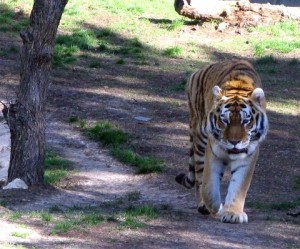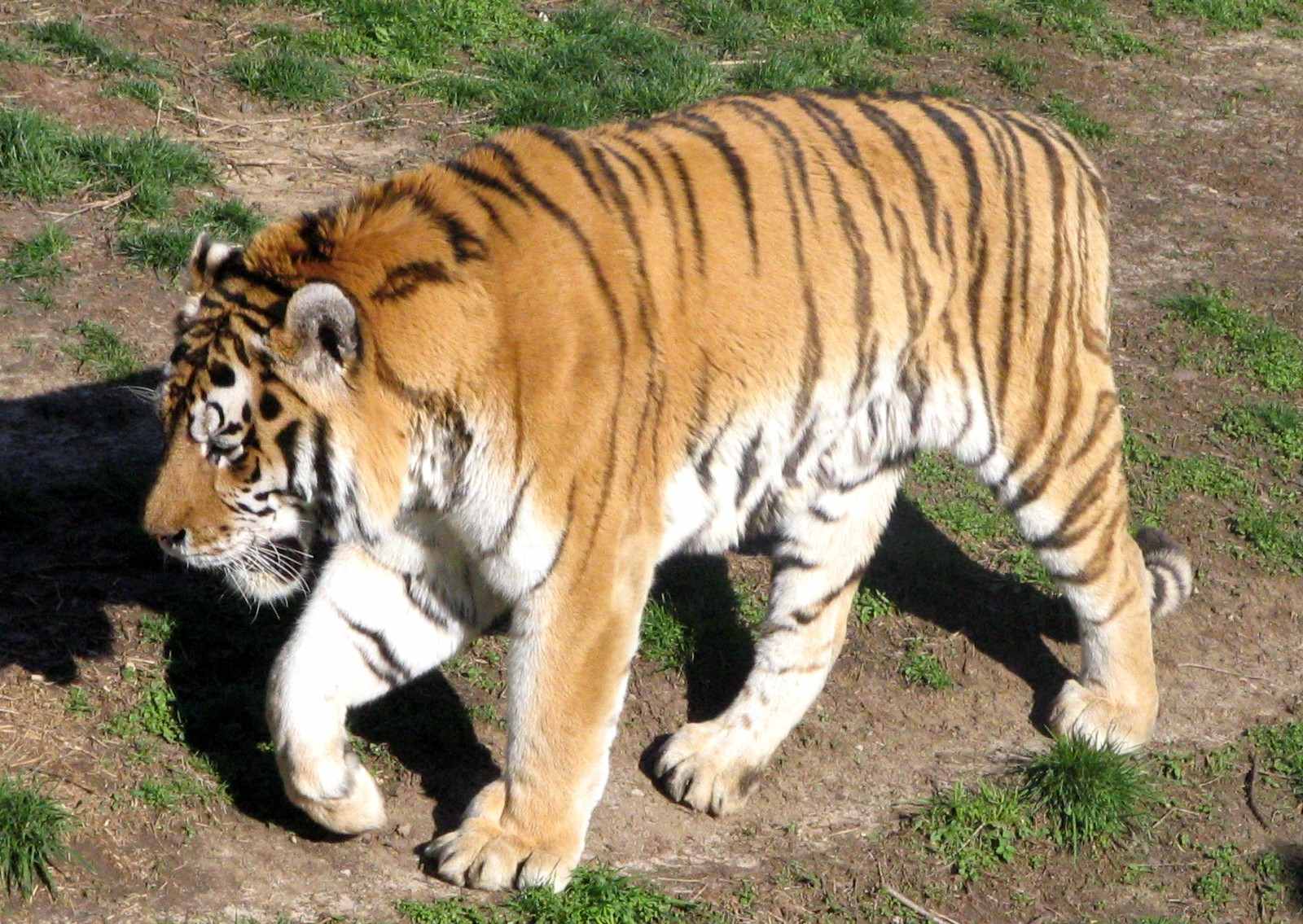In the February 2008 edition of Natural History Magazine (article not available online), you can learn where tigers still live in the wild. At the beginning of the 20th century, there were 100,000 tigers living in the wild. Today, there are only 5000 in the wild.  Tigers now inhabit only 7% of their original territory, which has shrunk by 41% in the past 10 years. Those relatively few tigers that remain in the wild hunt wild cattle, deer and pigs in isolated pockets of forested land in India, Sumatra, Eastern Russia in southern China. Tigers are hunted illegally for pelts and for tiger parts that are used in medicines (such as tiger penis soups).
Tigers now inhabit only 7% of their original territory, which has shrunk by 41% in the past 10 years. Those relatively few tigers that remain in the wild hunt wild cattle, deer and pigs in isolated pockets of forested land in India, Sumatra, Eastern Russia in southern China. Tigers are hunted illegally for pelts and for tiger parts that are used in medicines (such as tiger penis soups).
But did you know how many tigers live in United States? 7,000 to 15,000 tigers live
in private roadside zoos, circuses, sanctuaries, farms and backyards in the US. Owners are often deluded into thinking that they contain the creatures, treating them like house cats, perhaps attracted by the challenge. Yet even house cats, which
have been domesticated for thousands of years will reach out and swat their human companions. What happens when a six month old sixty-pound beast with claws and slicing incisors takes a swipe?
Are these privately owned tigers allowed to run in large open areas and kept in good health? Not likely. Many tigers are kept in cages much too small for them and they are “fed insufficient or inappropriate food, such as canned dog food.”

The Natural History article indicates that tigers …



